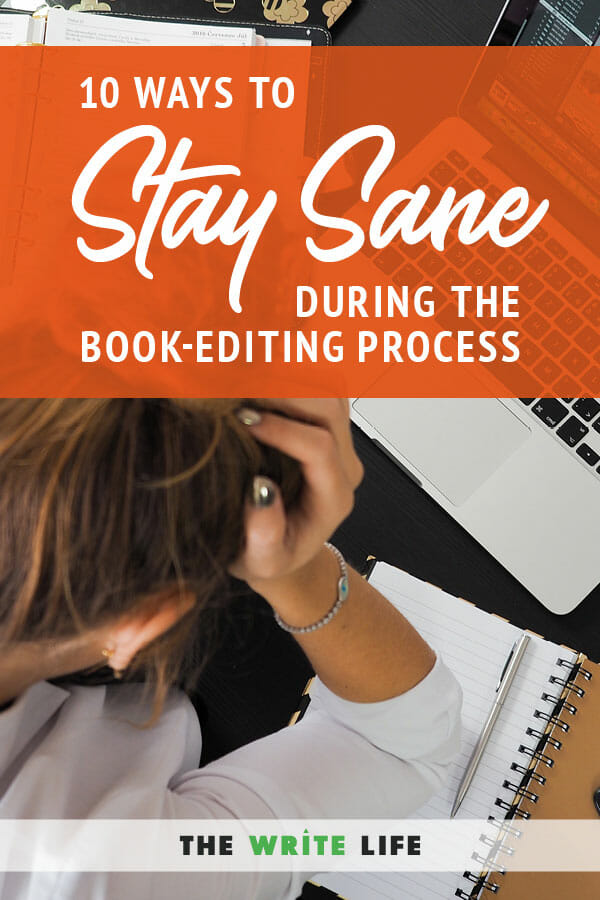Congratulations!
You’ve completed your best draft of your book. You’ve found, vetted and hired a qualified editor. You’ve sent them your masterpiece-in-the-making, and you were told that you’d see your edits in a month.
Now what?
The editorial waiting period can be — how can I put this delicately? — brutal.
In some instances, your editor may be the first set of professional eyes that will read your manuscript. For new writers, this can be a trying experience.
Heck, it’s excruciating for experienced writers. Just read Steinbeck’s Journal of a Novel.
You’ve spent months or even years getting your book ready for your readers, then you ship it off to an editor. It’s like sending your child to a college preview weekend (that lasts for a month). Can they make it by themselves?
It’s difficult not to be nervous during this editorial waiting period.
So take that nervous energy and transform it into something that will benefit yourself and your book. Here are ten suggestions for what to do during your editorial waiting period.
1. Don’t edit your book
Whatever you do, don’t work on your book.
Few things are more aggravating to an editor than a client who emails “small changes” to the manuscript after the editor has already begun working on the client’s manuscript. (This is “The Blob” from my last article, “The 10 Monsters Your Book Editor Fears Most.”)
When you send your book to your editor, it’s out of your hands. Refuse the urge to edit, amend, delete or otherwise change anything while your book is being edited. You’ll get the chance to revise once you’ve received your edits.
2. Start writing your next book
If you’re not burnt out on writing, begin writing your next book. Or, at least start planning your next book.
This may be a great way to continue your momentum without thinking about your current book. Unless, of course, you’re writing a sequel.
If you’re in this writing game for the long haul, you should always have a next book.
3. Plan your book launch
If you’ve never looked at a book launch plan, you don’t know how many steps can be involved.
Proper book launches take months of preparation. There are so many things to do and so many things that can be done.
And it doesn’t matter if you’re traditionally published or self-published. Both routes need author-led book launch strategies to ensure your book is discoverable and desirable when it’s released.
4. Seek guest posting opportunities.
Book launch strategies often include writing for online outlets. Begin your research into the websites, online magazine and blogs that your target audience reads.
If you already know what sites to pitch, visit that site and look for a “Write for us” link, which is usually in the footer. Alternatively, you can Google “how to write for [name of website].”
Be smart about whom you pitch. Make sure the site is relevant to your book’s topic.
5. Conduct a social media audit
When you release your book, you’ll want the world to know.
You’ll also want to update all of your online channels — your website, social media accounts and even your email signature — to let people know you’ve written a book.
Plan how you can coordinate all of your online outlets to reflect you as an author, e.g., color palettes, short bio and long bio, etc. To truly show your professionalism, have a pro headshot taken, then use that photo everywhere.
Without a finished book or cover, you won’t be able to update your look completely, but by thinking about how you want to represent yourself when your book launches, you will save yourself that time during your launch.

6. Invest time into another writer
Without a doubt, if you’ve accomplished the goal of a finished manuscript, you have learned something as a writer.
Take that hard-won knowledge and invest it into another writer.
Join a local critique group. Find a cadre of similar genre buddies online. Mentor a younger writer one-on-one.
7. Take that online course you’ve been meaning to take
Maybe it’s a writing course. Maybe it’s learning to use Scrivener. Maybe it’s mastering MailChimp.
Multiple online courses likely flew by your email inbox while you were writing your book. Now that you have a few weeks to a few months, dive into one course.
I’d recommend any proven course that can help you become a better book marketer, like those covering topics such as blogging, SEO, list-building, public speaking, paid advertising and selling books on Amazon.
8. Read
I’m willing to bet that, during your writing, a stack of books has piled up on your to-read shelf.
Grab the one that’s been calling your name the longest.
Spend the hours you used to spend writing by taking in the fuel of every great writer.
9. Communicate with your editor when appropriate
While most of my suggestions are aimed at making you forget about your book during the editorial phase, you can’t totally forget about it.
Stay on top of your email. Respond to your editor within an agreed-upon time frame. While same-day responses are much appreciated, editors understand that you have a life too. But the later you reply to a question from your editor, the longer the process may take.
Conversely, don’t email your editor unless necessary. Checking in on their progress once or twice during a monthlong edit is OK, but anything more than that is paranoia or insecurity. If you’ve done your homework in hiring them, trust that they’re getting the job done.
10. Take a break
Writing a book is hard. You know this. Everyone knows this. So there’s no shame in not taking my advice.
In fact, if you feel that writing your book has completely drained you, then don’t do anything related to your book. Just believe that your book is on a lovely vacation with your editor and you get to do the same: take a break. Maybe actually go on a vacation!
Just do something that enlivens you. Your physical, mental and emotional health is essential to making it as a writer.
Now, the next time your book is living with your editor, what will you do? Or, what have you done in the past that isn’t listed here? Let me know in the comments.
This post contains affiliate links. That means if you purchase through our links, you’re supporting The Write Life — and we thank you for that!
nolinks







